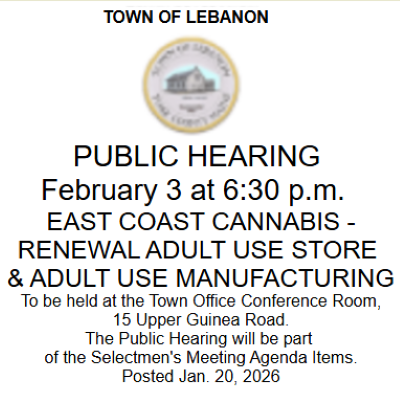Every state has virtues and vices, and vices are especially hard to conquer during the stresses of the COVID-19 pandemic. Harmful behavior on the individual level can result in staggering economic costs, considering that gambling addiction costs the U.S. $5 billion per year and smoking costs dwarf that with over $300 billion per year.
In light of these statistics, the personal-finance website WalletHub today released its report on 2022's Most Sinful States. To determine where the U.S. has the most moral growing to do, WalletHub compared the 50 states based on seven sinful behaviors: anger and hatred, jealousy, excesses and vices, greed, lust, vanity and laziness.
Here are some highlights from the report:
Sinfulness of New Hampshire (1=Most Sinful; 25=Avg.):
- 50th - Anger & Hatred
- 46th - Jealousy
- 23rd - Excesses & Vices
- 43rd - Lust
- 28th - Vanity
- 45th - Laziness
For the full report, please visit:
https://wallethub.com/edu/most-sinful-states/46852
Expert Commentary
What advice do you have for people trying to quit pandemic-acquired vices (excessive drinking and eating, gambling, unnecessary spending, etc.)?
"I would say that depends on the vice we are talking about and the degree of problems it. If a problem has risen to the level of being an addiction, then professional help may be necessary to help break that addiction. If it is merely a matter of cutting back on certain tendencies that can be costly (e.g., spending too much money on gambling), I would encourage them to try out different diversions, preferably some with fewer opportunities to create problem habits. There certainly is not a one-size-fits-all answer here."
Matthew J. Grawitch, Ph.D. - Director, Strategic Research, School of Professional Studies, Saint Louis University
"Recent research on behavior change suggests that several factors increase the likelihood of success. First, of course, someone needs to be committed to making changes. But people also need to recognize that our environment strongly influences our behaviors. If the goal is to get back into the gym, finding or making a friend who already works out regularly and getting them to agree to hold you accountable is effective because it makes your commitment to change public and there is accountability. Commit to the change for at least a month. After a month of willful commitment to the change, the new behaviors will begin to become their own routines, making it easier to stick with the behavioral change. It is also useful to consider whether other elements of one's environment can be modified to facilitate behavioral change. If drinking less alcohol is the goal, get rid of...all the...tools that facilitate drinking alcohol, as well as any other signs or symbols or reminders in the environment (e.g., that Bud Light t-shirt)."
Ryan T. Cragun - Co-Director, Honors Program; Professor of Sociology, The University of Tampa
What makes some states more sinful than others? Law? Culture?
"This is a bit of a difficult question to answer, mostly because there are so many factors that likely play a role. Additionally, the list of factors that lead to violent crime rates may not be the exact same list of factors that lead to excessive drinking. We can point to factors that are likely to be related to at least some of the scores, such as average education or SES levels, accessibility to various behaviors defined as vices (e.g., gambling, alcohol), the degree to which the culture or values inherent in the state encourage or promote certain behaviors, and laws that make various behaviors more or less likely."
Matthew J. Grawitch, Ph.D. - Director, Strategic Research, School of Professional Studies, Saint Louis University
Given that U.S. hate crimes are on the rise, what can be done to reverse this uptick?
"We need to invest in education, and make higher education more accessible, to curtail sins such as racism. Hate crimes, hate groups, white supremacist violence, and domestic terrorism are all on the rise, particularly in lower educated, poorer, and whiter areas of the South and West. People who suffer instabilities in their jobs, families, emotional and/or social life are more vulnerable to recruitment to racist and extremist groups. Strengthening families (particularly against drug and alcohol addiction), advancing education, and jobs protect against the sin of racism."
Maryann Cusimano Love, Ph.D. - Associate Professor & IPR Fellow, The Catholic University of America
"If you look at the uptick in violent crime reporting in general, hate crime reporting trends seem to follow largely the same trajectory. Therefore, reducing crime, in general, is likely to result in similar decreases specifically for hate crimes as well. Addressing increasing crime, though, is not likely to be a simple solution. Given that the motives for crime tend to vary, any solutions developed are going to have to address those motives."
Matthew J. Grawitch, Ph.D. - Director, Strategic Research, School of Professional Studies, Saint Louis University














